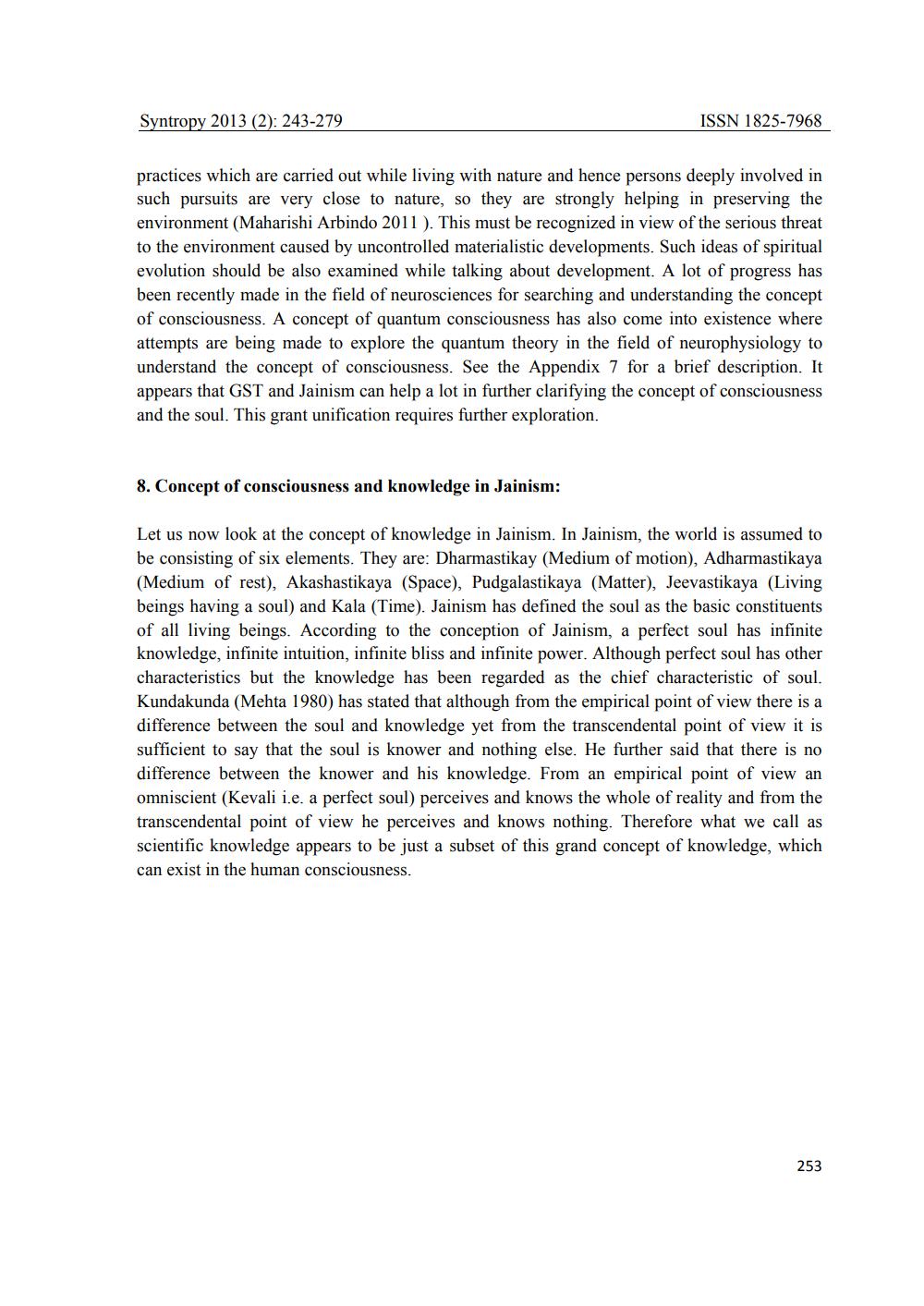________________
Syntropy 2013 (2): 243-279
ISSN 1825-7968
practices which are carried out while living with nature and hence persons deeply involved in such pursuits are very close to nature, so they are strongly helping in preserving the environment (Maharishi Arbindo 2011). This must be recognized in view of the serious threat to the environment caused by uncontrolled materialistic developments. Such ideas of spiritual evolution should be also examined while talking about development. A lot of progress has been recently made in the field of neurosciences for searching and understanding the concept of consciousness. A concept of quantum consciousness has also come into existence where attempts are being made to explore the quantum theory in the field of neurophysiology to understand the concept of consciousness. See the Appendix 7 for a brief description. It appears that GST and Jainism can help a lot in further clarifying the concept of consciousness and the soul. This grant unification requires further exploration.
8. Concept of consciousness and knowledge in Jainism:
Let us now look at the concept of knowledge in Jainism. In Jainism, the world is assumed to be consisting of six elements. They are: Dharmastikay (Medium of motion), Adharmastikaya (Medium of rest), Akashastikaya (Space), Pudgalastikaya (Matter), Jeevastikaya (Living beings having a soul) and Kala (Time). Jainism has defined the soul as the basic constituents of all living beings. According to the conception of Jainism, a perfect soul has infinite knowledge, infinite intuition, infinite bliss and infinite power. Although perfect soul has other characteristics but the knowledge has been regarded as the chief characteristic of soul. Kundakunda (Mehta 1980) has stated that although from the empirical point of view there is a difference between the soul and knowledge yet from the transcendental point of view it is sufficient to say that the soul is knower and nothing else. He further said that there is no difference between the knower and his knowledge. From an empirical point of view an omniscient (Kevali i.e. a perfect soul) perceives and knows the whole of reality and from the transcendental point of view he perceives and knows nothing. Therefore what we call as scientific knowledge appears to be just a subset of this grand concept of knowledge, which can exist in the human consciousness.
253




